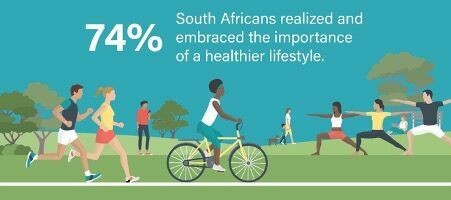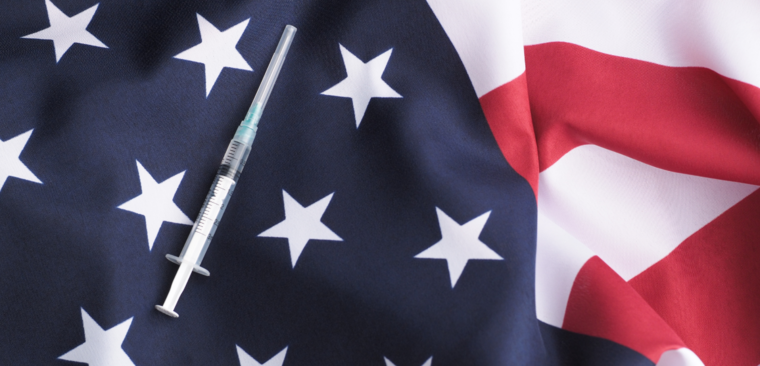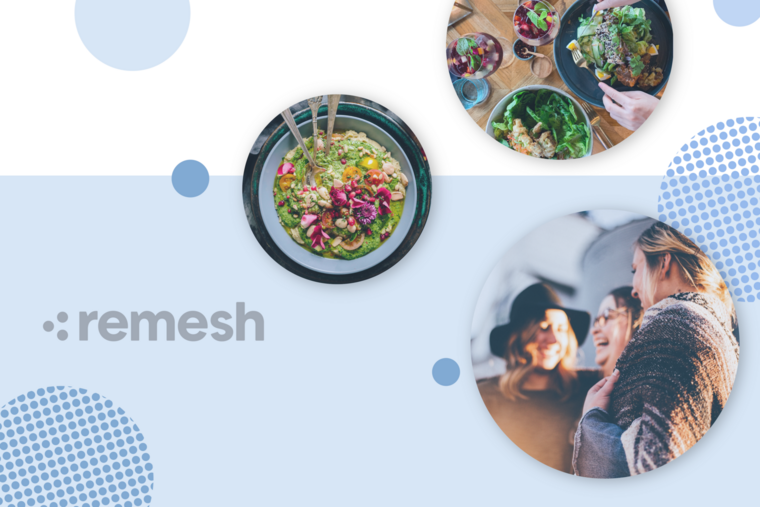Making healthy habits stick after COVID
Since COVID-19, there’s been a dramatic shift in consumers’ mindsets globally towards healthier lifestyle habits.

Article series
COVID-19 impact
- Making healthy habits stick after COVID
- Shobservatory Research Chronicles: Lockdowndiaries
- Capturing early stage consumer feedback, post-COVID
- Evolution of physical space in retail and hospitality
- November 2021 COVID-19 forecast & commentary
- Ethical brands in pandemic times
- November 14 reforecast due to OSHA rule stay
- COVID-19 December 2021 forecast for the USA
- Omicron
- COVID-19 forecast in the USA
- COVID-19 update for the USA
- COVID-19 Omicron retrospective
- Crises and community
- Research that makes a difference
Since COVID-19, there’s been a dramatic shift in consumers’ mindsets globally towards healthier lifestyle habits. Global digital market research company, Borderless Access, set out to find out what South Africans changed about their lifestyles and how food and beverage companies can help support consumers.
Renewed focus on health and fitness
A total of 303 South Africans (Males and females of 18+ years) were interviewed via a chatbot-enabled WhatsApp research methodology to which we had a total of 909 responses in 6 days across SA, Kenya and Nigeria. A benefit of using a chat application-driven research solution is receiving data in form of photos, videos, audio and text – a perfect combination for a quantitative-qualitative research approach.

Many South Africans used the weeks of lockdown as an opportunity to reset their health and fitness routines. 74% of them said they now consider health and fitness to be very important with eating healthily and exercising being placed at top of their list of healthy habits. This was followed by eating more fruits and vegetables, drinking more water and more home-cooked food.
“Covid-19 and the lockdowns over the last year definitely inspired South Africans to focus on being healthy and fit,” says Bev Tigar Bassett, AVP - Business Development at Borderless Access. “The most common changes we found people made during the pandemic was introducing home workouts into their routines and eating more healthily.”
Making healthy habits more permanent
Most of those surveyed were keen to continue with some of the healthy habits they developed during the lockdown. These included eating less meat, avoiding carbs and practising regular relaxation techniques, such as meditation.
“But many admitted that once things got back to normal, they were likely to drop many of their newfound healthy habits,” adds Tigar Bassett.

While 82% of South Africans said they ate more fruit and vegetables during the pandemic, only 66% expected that they would continue with this habit. And although 68% said they exercised more during the pandemic, only 56% said they would continue with this regime. Another 71% said they ate more home-cooked food, but only 50% expected that this would carry on once Covid was over.
Product innovation is key
When it came to making healthier food and drink choices, the study found that for South Africans, taste was paramount in their decision to choose healthier products. For example, choosing lower sugar variants of their favourite soft drink brand. Interestingly, price was one of their lowest considerations.

Of the sample, 77% of South Africans said they would choose low and zero-calorie soft drinks to reduce their sugar intake and as part of their desire to maintain a balanced diet. 24% said they were more likely to make their decision based on taste, compared to just 6% who said they considered the cost compared to the regular version of their favourite brand.
The study suggests that one of the best ways to encourage consumers to choose lower sugar variants is not punitive taxes, but instead focusing on how to make healthier products more appealing.
“For food and beverage companies, a focus on product innovation – such as improving the taste of lower sugar food and drink options as well as educating consumers through marketing campaigns and further improving labelling information, for example, could help people make more permanent changes to their behaviour – assisting them to keep healthy habits beyond Covid while maintaining product/ brand affinity,” Tigar Bassett concludes.
Bev Tigar-Basset
Associate VP Business Development at Borderless AccessArticle series
COVID-19 impact
- Making healthy habits stick after COVID
- Shobservatory Research Chronicles: Lockdowndiaries
- Capturing early stage consumer feedback, post-COVID
- Evolution of physical space in retail and hospitality
- November 2021 COVID-19 forecast & commentary
- Ethical brands in pandemic times
- November 14 reforecast due to OSHA rule stay
- COVID-19 December 2021 forecast for the USA
- Omicron
- COVID-19 forecast in the USA
- COVID-19 update for the USA
- COVID-19 Omicron retrospective
- Crises and community
- Research that makes a difference


